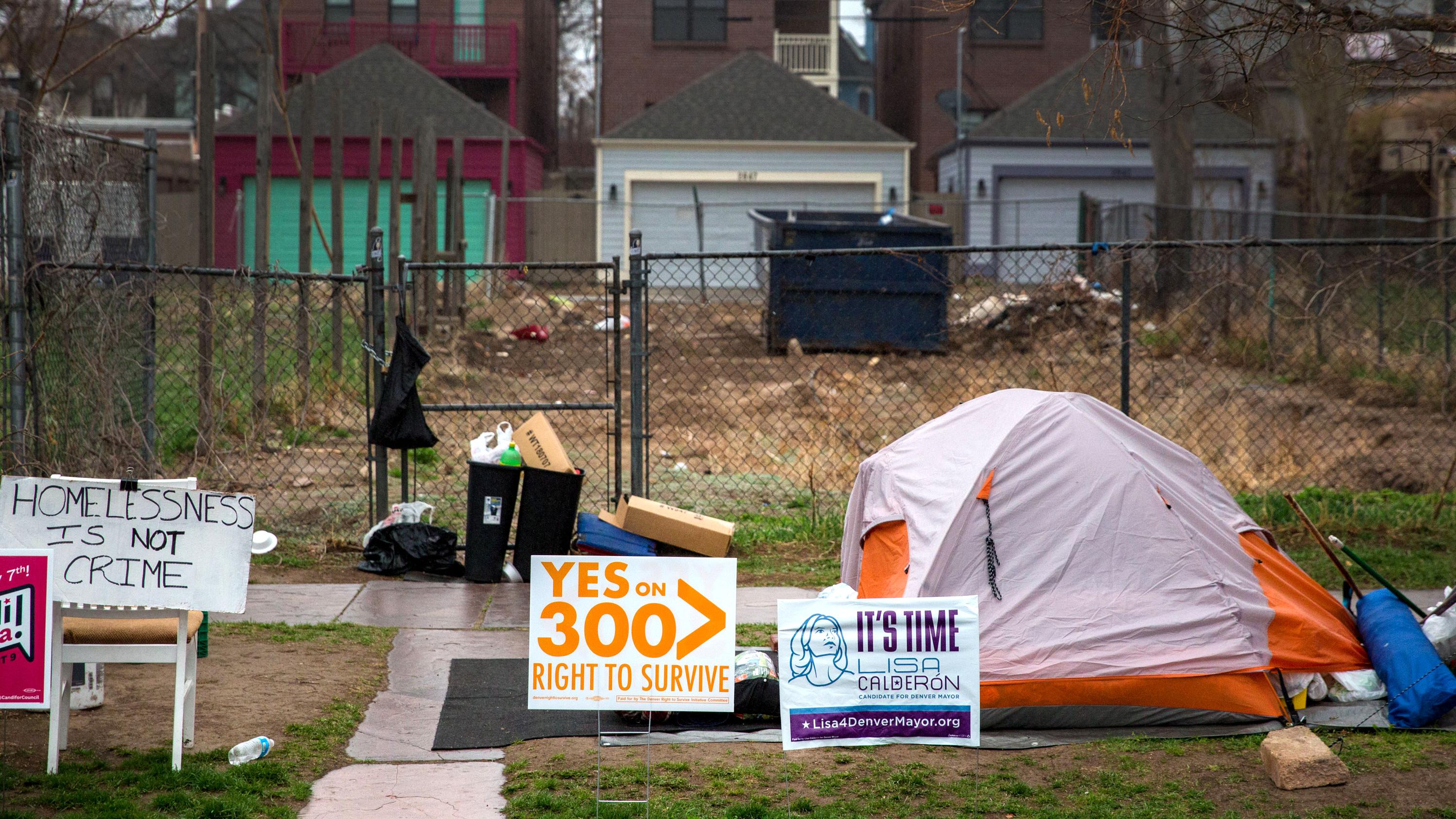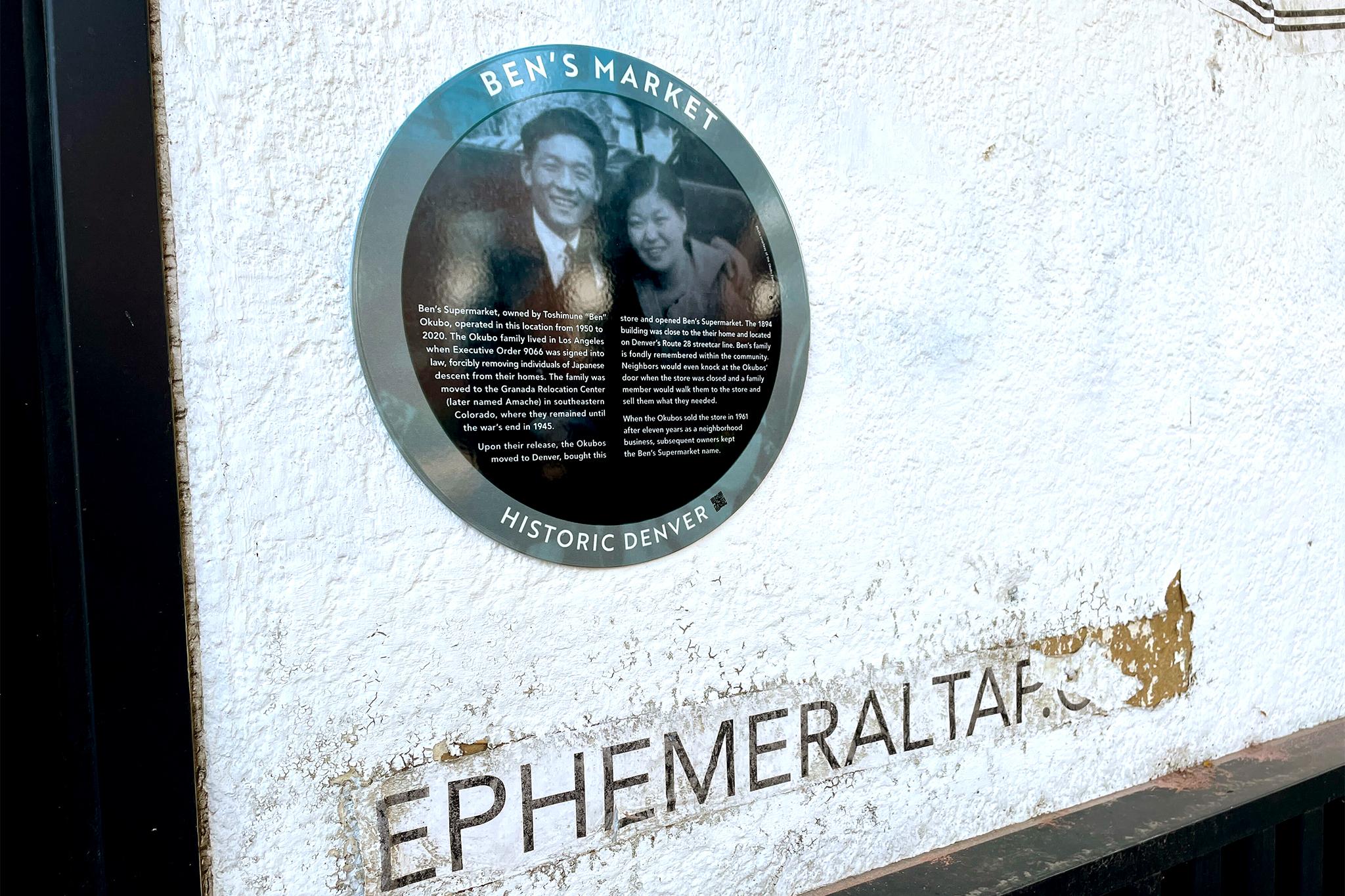A passionate yet respectful debate on the proposal to overturn Denver's camping ban ended with a key nonprofit fighting homelessness deciding to remain neutral on the polarizing issue.
Right to Survive, which will appear on Denver's May 7 municipal ballots as Initiative 300, was on the agenda Thursday at a regular monthly meeting of the Metro Denver Homeless Initiative. The nonprofit connects service providers across the region, leading them in the annual Point-in-Time survey to collect data on homelessness and helping them keep abreast of best practices and secure federal grants for their programs.
Many MDHI partners have already expressed reservations about Right to Survive. They also have criticized the city's camping ban, saying it criminalizes homelessness, and distanced themselves from a political campaign they say diverts attention and resources from addressing homelessness.
Among service providers who have strongly opposed Right to Survive is the Colorado Coalition for the Homeless, which has a senior staffer on the MDHI board. That staffer, Michael Malloy, said during Thursday's meeting that he was concerned about language in the initiative that makes it a civil rights violation to "harass" someone living on the streets. While the authors of the initiative say it's not the case that offering aid would be considered harassment, critics worry that vague language creates uncertainty that might have to be settled in the courts.
"If somebody ODs in Colorado Coalition for the Homeless's lobby, if we try to help them, we might be violating their rights," Malloy said.
Shelley McKittrick, who directs Aurora's Homelessness Program and is president of MDHI's board, said it's the camping ban that puts people at risk, forcing them into hiding and away from services.
"People are dying on the street because of the camping ban," she said. "The criminalization of homelessness is happening in cities that don't have camping bans every day, and it's happening more in cities that have camping bans. I can't vote any other way than to support people who are living in homelessness."
Thursday's discussion left it unclear whether the board would have been able to reach a position on the initiative. The decision to remain neutral appeared to stem as much from differences of opinion on a controversial topic as from a desire to be able to continue working with groups and individuals with differing perspectives.
St. Francis Center, which offers shelter, housing, employment and other programs, recently released a statement saying that while the Right to Survive would decriminalize camping in public, it could shift the "focus from thriving to just surviving."
"While no one would want to vote against something that provides people with the basic right to survive, 300 does nothing to provide basic services such as a bed, food, and health care," the St. Francis statement added. "It's because of these reasons we cannot support Initiative 300 and ask that the community of Denver put the needs, safety and well-being of our guests/clients and our community first and vote NO on Initiative 300."
John Parvensky, the longtime head of the Colorado Coalition for the Homeless, said in an April 7 commentary in The Denver Post that, unless public health and safety were clearly threatened, the city should stop enforcing "laws against people experiencing homelessness that punish survival activities like sheltering."
He added: "I am concerned that the 'solution' offered in the Right to Survive initiative will have unintended consequences and will not resolve the complex crisis we are experiencing in Denver."
"I believe that a lasting solution requires an adequate supply of affordable housing dedicated to the homeless and a robust emergency response system that has safe, appropriate and accessible emergency shelter until longterm housing can be obtained," Parvensky said.
Last month, Parvensky's Colorado Coalition for the Homeless, which serves more than 18,000 people every year in its housing and health programs, issued its own statement expressing concern about Right to Survive. The coalition and St. Francis Center also joined six other major service providers in a statement detailing their misgivings about the measure and their indignation that opponents were spending so much money to defeat it.
Together Denver, the opposition group led by prominent business and political figures, has raised more than $1.5 million and spent nearly $1 million, according to its latest campaign finance report. That's more than some mayoral candidates, though not more than Mayor Michael Hancock's campaign. Together Denver's donors such as the National Association of Realtors and the Downtown Denver Partnership have written six-figure checks for a campaign with the tag line: "We can do better!"
Denver Homeless Out Loud, the advocacy group that includes people who have or are experiencing homelessness, led the petition drive to get Initiative 300 on the ballot. It has so far raised about $80,000, most in donations of under $50. The proponent's biggest single donor, at less than $20,000, has been the suspended mayoral campaign of businessman Kayvan Khalatbari.
Denver Homeless Out Loud argues that overturning the camping ban is a matter of protecting the basic human rights of people living on the streets while it and other organizations work to ensure housing for all.
David Jackson had been expecting police and city workers to descend to clear away the encampment at 27th and Arapahoe where he pitched his tent a few weeks ago. But Public Works spokeswoman Nancy Kuhn said Wednesday, the day the "sweep" was scheduled, that the priority had shifted to connecting people without homes to shelter as bad weather approached. She added that Jackson and others at the camp would get notice when a new cleanup date was scheduled.
Jackson wondered if city officials were holding off "to see what 300 is going to do."
If the clean-up had gone forward, "I would have rolled up my stuff and found some place else to be," he said.
It would not have been a shelter. Jackson said he tried once to sleep in a shelter, but found that his "PTSD won't allow me to be in there. It's too much like a prison. It's just warehousing men."
Instead of banning camping, Jackson said, the city should support orderly camping by providing portable toilets and other support for people like him who don't want to stay in shelters and are trying to get back on their feet. He takes day jobs in construction.
"I work every day, or try to," he said. "I don't use drugs. I don't use alcohol. I'm just one of the working poor."













